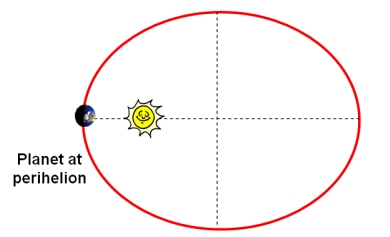No theory ever agrees with all the facts in its domain, yet it is not always the theory that is to blame. Facts are constituted by older ideologies, and a clash between facts and theories may be proof of progress. It is also a first step in our attempt to find the principles implicit in familiar observational notions.In this segment, he states that because no theory, no matter how well-established or encompassing it is, will fail to be consistent with all facts in its domain. This is the example that he provides:
The perihelion (the point closest to the Sun) of Mercury moves at a rate of roughly 5600" per century. Of this value, roughly 43" are derived from a relativistic calculation; specifically, the so-called "Schwarzschild solution" does not involve the planetary system of this real world, but rather it assumes a fictional, perfectly central and symmetrical universe.
The reason for using such solutions, scientists claim, is that we deal with approximations in science. Yet Feyerabend argues that such ad hoc approximations "conceal, and even eliminate, qualitative difficulties." Although not as apparent in this example, such approximations eventually give a false impression of the "excellence" of our science. Feyerabend relates this methodology to a medicine that "heals a patient only if he is bacteria-free."
He maintains that,
A theory may be inconsistent with the evidence, not because it is incorrect, but because the evidence is contaminated.When we, for instance, reject theories because they conflict with "data" or "evidence" using approximations with unrealistic scenarios, we do so unfairly. We fail to recognize the validity of new theories because we engrave the "framework of some older cosmology." This is why, he argues, that we need to have a pluralistic mindset, comparing and analyzing all possible theories, especially those that directly go against "accepted" ideas. We must be able to criticize such theories via comparisons, since direct analyses will only hinder efforts.
He thus concludes that,
The right method must not contain any rules that make us choose between theories on the basis of falsification. Rather, its rules must enable us to choose between theories which we have already tests and which are falsified.Karl Popper, a strong proponent of the falsification methodology, would undoubtedly have a strong response against it.

No comments:
Post a Comment